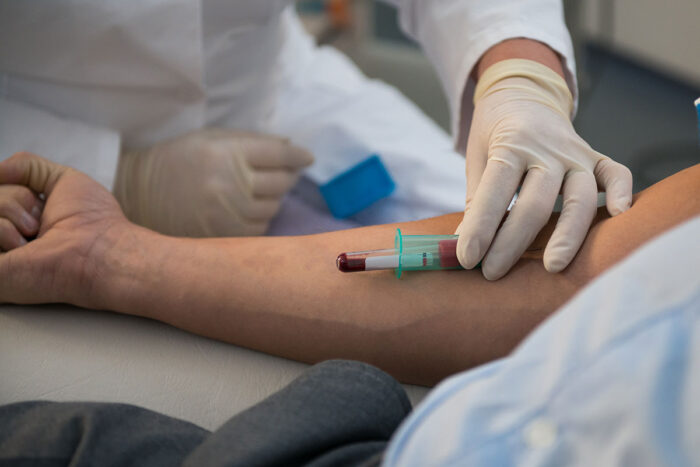- UID
- 20
- Online time
- Hours
- Posts
- Reg time
- 24-8-2017
- Last login
- 1-1-1970
|
|
━━━━━━━━━━━━━━━━━

▼ disease has moved one step closer to reality. Researchers from Washington University School of Medicine in St. Louis report that they can measure levels of the Alzheimer’s protein amyloid beta in the blood and use such levels to predict whether the protein has accumulated in the brain. The findings represent a key step toward a blood test to diagnose people on track to develop the devastating disease before symptoms arise.
Up to two decades before people develop the characteristic memory loss and confusion of Alzheimer’s disease, damaging clumps of protein start to build up in their brains. Now, a blood test to detect such early brain changes has moved one step closer to clinical use.
Researchers from Washington University School of Medicine in St. Louis report that they can measure levels of the Alzheimer’s protein amyloid beta in the blood and use such levels to predict whether the protein has accumulated in the brain. When blood amyloid levels are combined with two other major Alzheimer’s risk factors – age and the presence of the genetic variantAPOE4– people with early Alzheimer’s brain changes can be identified with 94% accuracy, the study found.
The findings, published Aug. 1 in the journal Neurology, represent another step toward a blood test to identify people on track to develop Alzheimer’s before symptoms arise. Surprisingly, the test may be even more sensitive than the gold standard – a PET brain scan – at detecting the beginnings of amyloid deposition in the brain.
Such a test may become available at doctors’ offices within a few years, but its benefits will be much greater once there are treatments to halt the disease process and forestall dementia. Clinical trials of preventive drug candidates have been hampered by the difficulty of identifying participants who have Alzheimer’s brain changes but no cognitive problems. The blood test could provide a way to efficiently screen for people with early signs of disease so they can participate in clinical trials evaluating whether drugs can prevent Alzheimer’s dementia.
“Right now we screen people for clinical trials with brain scans, which is time-consuming and expensive, and enrolling participants takes years,” said senior author Randall J. Bateman, MD, the Charles F. and Joanne Knight Distinguished Professor of Neurology. “But with a blood test, we could potentially screen thousands of people a month. That means we can more efficiently enroll participants in clinical trials, which will help us find treatments faster, and could have an enormous impact on the cost of the disease as well as the human suffering that goes with it.”
The test, an earlier version of which first was reported two years ago, uses a technique called mass spectrometry to precisely measure the amounts of two forms of amyloid beta in the blood: amyloid beta 42 and amyloid beta 40. The ratio of the two forms goes down as the amount of amyloid beta deposits in the brain goes up.
The current study involved 158 adults over age 50. All but 10 of the participants in the new study were cognitively normal, and each provided at least one blood sample and underwent one PET brain scan. The researchers classified each blood sample and PET scan as amyloid positive or negative, and found that the blood test from each participant agreed with his or her PET scan 88 percent of the time, which is promising but not accurate enough for a clinical diagnostic test.
In an effort to improve the test’s accuracy, the researchers incorporated several major risk factors for Alzheimer’s (▪ ▪ ▪)
► Please, continue reading this article here: Source |
Rate
-
View Rating Log
|